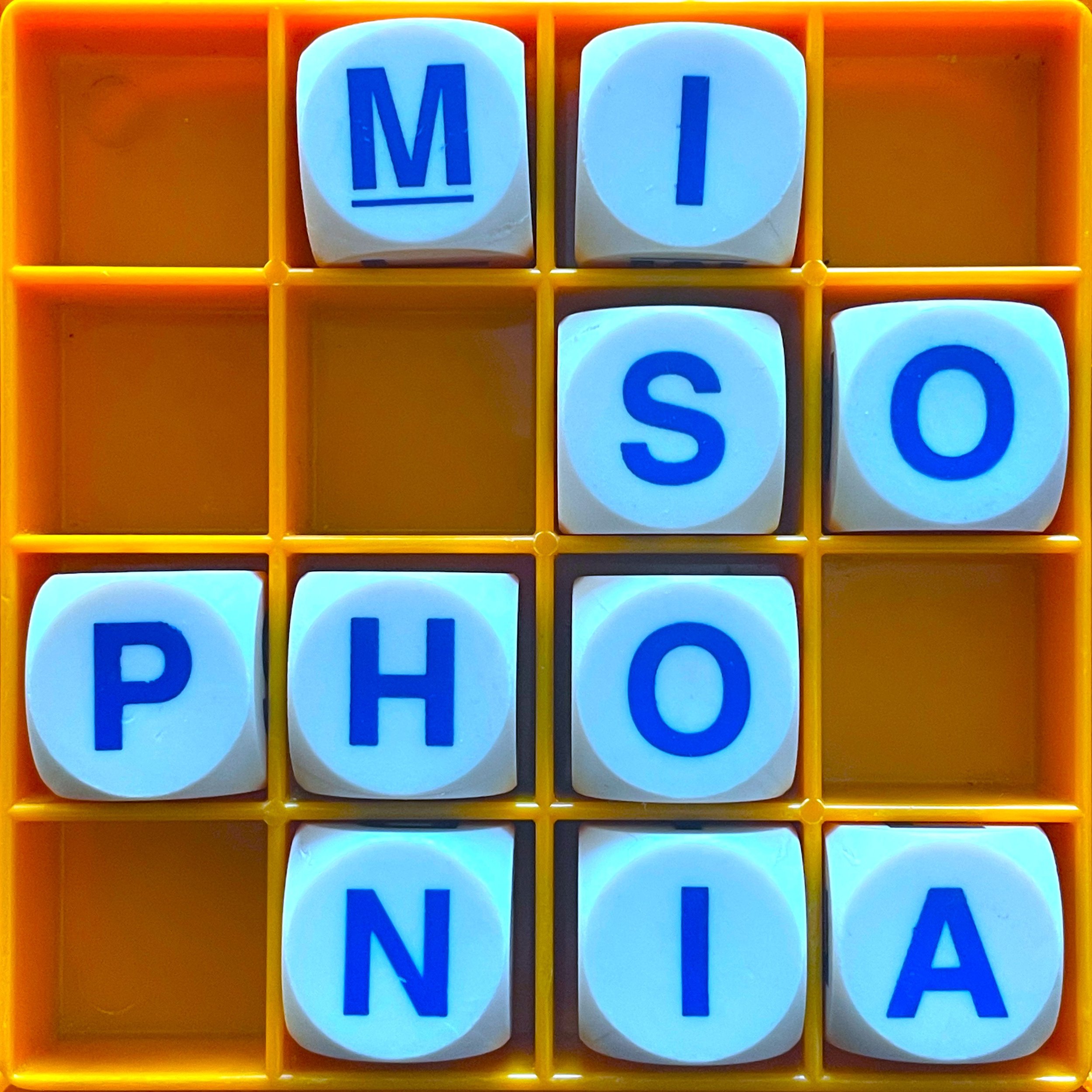JANE GREGORY: Misophonia is an extreme reaction to certain sounds and not an aversion to all sounds, but an extreme reaction to specific sounds. And the most common sounds are eating and heavy breathing and kind of repetitive sniffing and coughing and things like that. Which are also sounds that most people don't like the sound of, but people with misophonia will get a much more intense reaction, so it might be more like a fight or flight kind of response, a feeling of anger or panic as opposed to feeling annoyed or irritated or disgusted by the sound. And there's a bit more to it in terms of what goes on around the sounds as well. So it might be feeling trapped or helpless when they can't get away from these sounds. It might be listening out for sounds, even when there aren't any, or continuing to listen to see if the sound is still going, even if it's stopped. And doing things to organize your life around sounds or to cope with sounds. when they happen. So most people who don't like a sound will just deal with it. For people with misophonia, they have to do things to not be able to hear it or to be able to cope with their reactions to it.
HZ: Rather than just grimacing.
JANE GREGORY: Exactly. I mean, there's also some grimacing, but probably also some glaring.
Allusionist 115. Keep Calm and transcript
HZ: Does being told to keep calm work?
JANE GREGORY: I can think of so many ways why it doesn't work.
Allusionist 100. The Hundredth - transcript
Today there’ll be a celebratory parade of language-related facts that you’ve learned from the Allusionist and I’ve learned from making the Allusionist, so some old facts, some new facts - well, the new facts aren’t recently invented facts, they are established facts, just making their Allusionist debut.
Read moreAllusionist 91. Bonus 2018 - transcript
Today’s episode is the annual bonus Allusionist, featuring outtakes from some of this year’s guests saying things that were not necessarily related to the topic of the original episode, or even related to language at all, but I thought, “Hmm! Interesting!” and filed them away until THIS MOMENT.
This is not a typical episode of the Allusionist, so if this is your first time here, welcome! And do try a few different episodes of the show to get a picture. This year there have been episodes about your names, and superhero names; about how swearing can be good for your health, and so can novels; about tattoos, and typing champions; about how the drive to survive sent the Welsh language across an ocean, and the Scots language to hide at home; and many more. Thanks so much for spending time with me over 2018.
Read moreAllusionist 82 A Novel Remedy transcript
When you’re not feeling well, which books do you turn to to make yourself feel better?
I asked this question on the Allusionist Facebook and Twitter, and hundreds of you responded, but a few answers came up again and again:
Terry Pratchett, Douglas Adams, JRR Tolkien.
Makes sense. Science fiction, fantasy: what’s more escapist?
Jane Austen. PG Wodehouse.
Also escapist, thanks to period setting - and, rich people problems not health problems.
Things you read when you were a child: Moomins, What Katy Did, Anne of Green Gables…
Taking you back to a time in your life that perhaps felt safer, or simpler...
...Harry Potter.
Boarding school shenanigans! Wizard problems not real life problems!
And, Agatha Christie.
Poison! Gunshots! Stabbing! Hang on, why would stories about murder make us feel better?
Well, they’re kind of supposed to make you feel better.
Read moreAllusionist 14: Behave - transcript
Thanks to your own brain, words have the capacity to become your worst enemy.
JG: it could just be a random word, something attached to something you know, or something that you happened to be thinking at the time you were feeling awful so it became the word that means something bad.
HZ: No words are safe.
JG: No! Because that part of our mind just mashes things together in different ways, and if it mashes two things together at a time when you’re feeling a certain way, that connection sticks, which is where the therapy comes in - unsticking those things.






